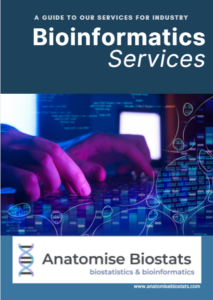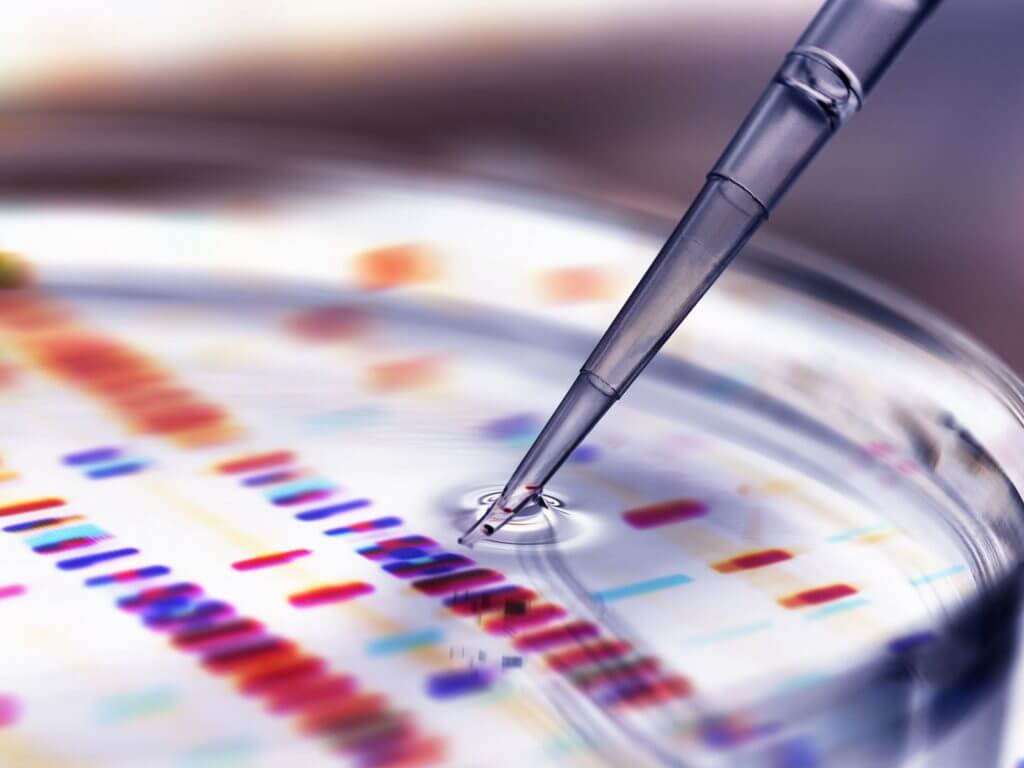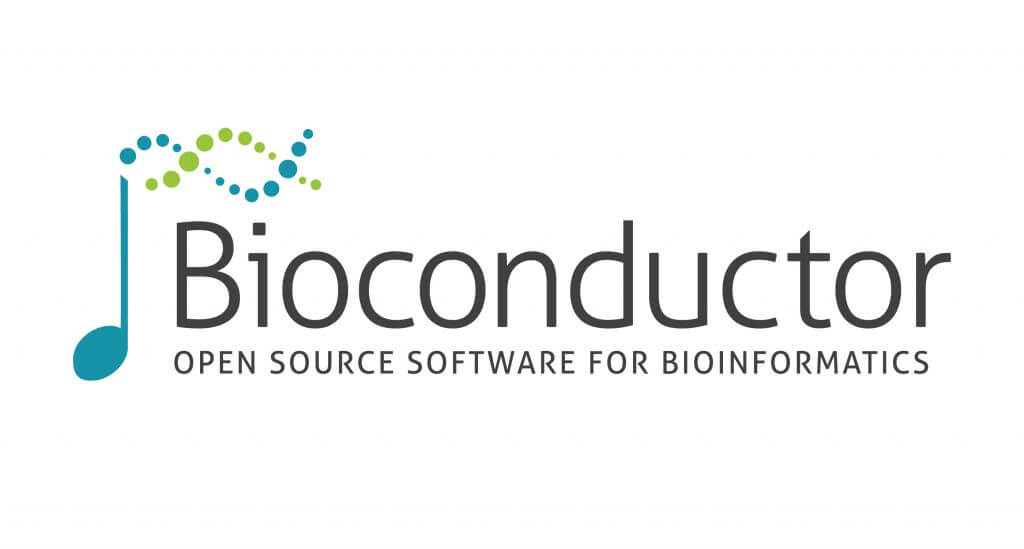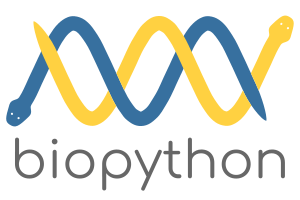Could Bioinformatics Enhance Your Research?
Drug Discovery
Analysis of omics data can complement and enhance your existing drug discovery methods and increase the likelihood of treatment effectiveness. The likelihood of treatment efficacy can be assessed across specific biomarker groups using simulation or association studies of drug components prior to the development of the drug.
Precision Medicine
Bioinformatic approaches can enable development of patient-targeted therapies and can also allow for biomarker-based treatments tailored towards an individual patient, thereby having a greater likelihood of treatment success. In addition, the analysis of omics data from patients allows for the prediction of a patient’s response to a given drug (efficacy, side effect severity, etc.).
Clinical Trials
Biomarker-based clinical trials allow the treatment under investigation to be tailored to the patient. Alternatively, the study population can be restricted to patients with specific biomarkers. In either case, the chance of a successful trial is increased, and treatment efficacy can be more clearly determined.

Bioinformatics Services for Biotech & Pharma Start-ups & SMEs
Send download link to:
Bioinformatics & Clinical Trials
Bioinformatics is an interdisciplinary field that combines biology, computer science, and statistics to analyse and interpret biological data, particularly large-scale genomic and molecular data. In the context of clinical trials, bioinformatics plays a role in the analysis of genetic and molecular data collected from participants. For example, bioinformaticians may use computational tools and algorithms to analyse gene expression patterns, identify genetic variants associated with drug response, or investigate biomarkers indicative of treatment outcomes. Bioinformatics can also be utilized to analyse data from high-throughput technologies, such as next-generation sequencing, proteomics, and metabolomics, to gain insights into disease mechanisms and treatment responses.
While biostatistics focuses primarily on the application of statistical methods to study design and data analysis, bioinformatics deals with the management and analysis of large-scale biological data, particularly in the context of genomics and molecular biology. Both fields are crucial in the process of conducting rigorous and data-driven clinical trials, enabling researchers to draw meaningful conclusions and advance medical knowledge.
Key Benefits of adding an Omics component to Your Clinical Study:
- Reduce the amount of time wasted on ineffective treatment regimens that would unnecessarily consume research budget and produce undesired treatment effects.
- Mitigate the chance of adverse side-effects during your clinical trial.
- Discover which patients your treatment is most likely to benefit and therefore who to focus on in clinical trials.
- Increase the likelihood of treatment success.
- Minimise the time and cost-to-market of your drug.

Bioinformatics expertise
at any stage of your project
from the design stage
to final analysis.
We tailor the latest
analytics methodologies
to best serve
your research goals.
Bioinfomatics as a stand-alone service
Whether you want to:
- Build a pipeline
- Plan a new experiment
- Leverage cloud computing to accelerate your data analysis
- Utilise advanced machine learning methods to tease out meaningful patterns in your data
- Get clarity on experimental output
Our biostatistics and bioinformatics techniques can help you:
- Make sense of generated big omics data
- Validate and identify biomarkers in the field of molecular life science
- Perform upstream analysis to assure the quality of next generation sequencing data
- Tease out meaningful pattern through appropriate biostatistical methods
- Leverage advanced multi-objective ensemble dimensionality reduction techniques
- Combine your results with information about the interactions of molecules (genes, RNA, proteins, microbiome)
- identify a minimum number of biomarkers required to predict the phenotype under study with the highest possible accuracy
- GENOMICS
- PROTEOMICS
- TRANSCRIPTOMICS
Comparative Genomics
Full genome sequence data analysis:
The complete sequence of any number of genomes enables
comparisons between species in terms of the amount and type of
genetic variation. Alleles can be analysed to assess the speed at
which a change has occurred and determine a rate of evolutionary
divergence between species.
Partial gene sequence data analysis:
The function of single genes or gene fragments can be investigated through partial gene sequencing. This allows the relationship between species to be explored. Genetic, morphological, and ecological characteristics of an organism can be studied against other data to determine evolutionary relationships. This can be achieved via the following techniques:
- Genome assembly (de novo genome assembly, reference guided assembly).
- Genome annotation (in silico by gene prediction software or combined with transcriptome data in R-Seq).
- Read filtering and cleaning.
- Genome mapping.
- Variant calling (Single nucleotide polymorphisms (SNP) called against a reference genome, or against a combination of genomes, combine variants lists to find de novo mutations via comparison and filtering).
- Variant annotation ( variants can be annotated with location on the genome, variant type homo/heterozygous, function classification of exon variants, amino acid changes, database identifiers, using annotations for variant ranking and filtering, predicting pathogenicity of exonic variants).
- Copy number analysis (copy number generation for chromosome segments, genes and exons).
Metagenomics
Metagenomics involves extracting DNA directly from non-lab samples, such as biomes. This form of sampling can then be used for full gene sequencing and to catalogue full gene products and infer impacts of the microenvironment. Metagenomics can be used for the discovery of new organisms, genes, and gene products. This can be achieved via:
- Gene expression patterns clustering.
- Class prediction.
- Biological mechanism prediction.
- Microbiome analysis.
Behavioural Genomics
Behavioural genomics allow for the analysis of behaviours and phenotypes which are the result of multiple interacting genes and environmental factors. Such techniques include linkage mapping in twin studies, which allow us to link specific genes to behavioural phenotypes.
In addition, a candidate gene approach can be used to evaluate the association between specific alleles and particular traits or behaviours. Causal links in candidate genes can be determined by analysing data from knock-out/knock-in approaches such as in transgenic mice models. Candidate genes are often first determined through larger-scale approaches including genome sequencing of thousands of genes at once, as well as through microarray comparison techniques.
Pharmacogenomics
Multi-gene analysis or whole-genome single nucleotide polymorphism profiles (SNP) can be used to identify genetic loci associated with known drug responses.
This can be relevant in studies of pharmacokinetics, pharmacodynamics, and evaluations of drug safety. Phenotypic groups can be assigned to individuals by allele detection using DND chip microarrays. This can aid in the prediction of adverse drug reactions (ADRs) and drug hypermetabolisation.
Epigenomics
Heritable changes not encoded in DNA sequences such as methylation changes have been shown to be associated with disease. Epigenomic analysis can involve mapping heritable changes such as cytosine methylation of DNA at CpG dinucleotides. This requires a comparison of methylation levels across numerous samples. Methylation-based predictive models can then be derived in order to inform further research.
Techniques such as MeDIP-Seq can aid in the mapping, annotation, and comparison of methylated DNA and unmethylated cytosines. Other sequencing techniques such as BBSeq and RRBS-seq can help to investigate methylated individual cytosines.
Non-methylation mechanisms such as covalent histone modifications, micro-RND interactions and chromatin remodelling complexes can also be mapped. The ChIP-Seq technique allows whole genome histone modifications to be investigated by analysing protein interactions with DNA.
Proteomics
Proteomics is the study of the proteome, the set of proteins in the cell or tissue, including protein quantity and diversity. Proteomics offers a snapshot of the proteome, which is in constant flux, and does not pick up on dynamic protein changes and interactions such as post translational modifications.
As a single gene can produce multiple versions of a protein via alternate RNA splicing, proteomics can enable a more complex investigation of evolutionary processes than genomics.
Changes in the proteome can reveal changes in the environment or correspondingly the health of cells as a method to assess disease states.
Proteomics analyses
Functional annotation and enrichment analysis:
- GO, COG, KOG, KEGG and domain annotation analysis.
- GO, KEGG and domain enrichment analysis.
- Directed Acyclic Graphs (DAGs).
Clustering analysis:
- Hierarchical clustering.
- K means clustering.
Network analysis:
- Protein-protein interaction analysis.
- IPA analysis.
- Co-expression network analysis.
Proteomic analysis of PTMs:
- PTM prediction analysis.
- PTM cross-talk analysis.
- Conserved sequence analysis.
Protein sequence, structure, and evolution analysis
Transcriptomics
Different cells of an organism have the same genes but tend to show different patterns of gene expression. Transcriptomes allow the study of gene activity, and therefore expression.
The transcriptome, which accounts for less than 5% of the human genome, can be compared between cell or tissue types. Furthermore, the constituents of specific cell types can be analysed to give an indication of transcription factors contributing to health or disease processes.
Transcriptomics can tell us when and where genes are turned on or off, which can help indicate possible targets for gene therapy. The characteristics of these targets can be revealed by further analysis, which can be used to inform the therapeutic approach to these targets.
As such, it may be an informative addition to any genomics, clinical or life sciences research enquiry.
Transcriptomics Analyses
Identifying specific genes expressed in a cell at specific times can be achieved through the following techniques:
Expressed sequences analyses:
- Total RNA-Seq (Whole Transcriptome) Sequencing Data Analysis.
- RNA-Seq (mRNA) Data Analysis.
- Small RNA Resequencing Data Analysis.
- Transcriptome mapping.
- Transcriptome de novo assembly.
Other key techniques in transcriptomics include:
Microarrays analysis:
Comparing mRNA levels for thousands of genes at once enables the compilation of transcription profiles. These allow for the molecular classification of disease and the study of mechanisms behind its progression.
SAGE:
Serial analysis of gene expression, massively parallel signature sequencing, pyrosequencing, and expressed sequence tags – the data sets produced by these techniques facilitate and complement microarray analyses. This aid in the establishment of functional linkages between fully sequenced genomes and their expressed RNA products.




Maximise your insights and expand what’s possible.
Get in contact today to discuss your research.
